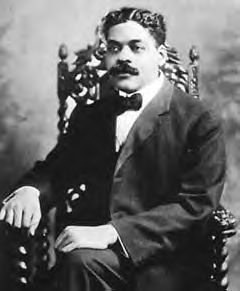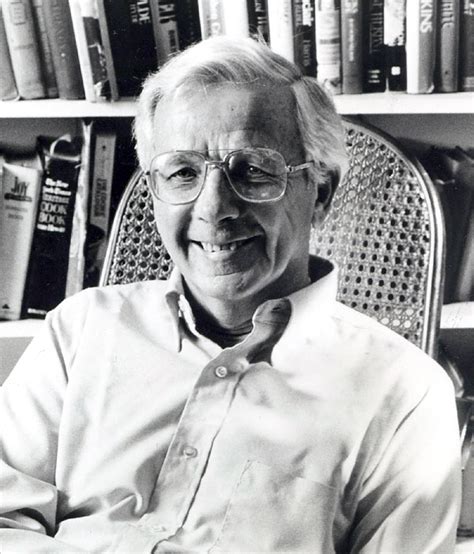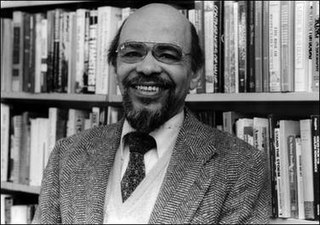A Quote by Jacob Lawrence
I've always been interested in history, but they never taught Negro history in the public schools...I don't see how a history of the United States can be written honestly without including the Negro. I didn't [paint] just as a historical thing, but because I believe these things tie up with the Negro today. We don't have a physical slavery, but an economic slavery. If these people, who were so much worse off than the people today, could conquer their slavery, we can certainly do the same thing....I am not a politician. I'm an artist, just trying to do my part to bring this thing about.
Quote Topics
About
Always
Am
Artist
Because
Been
Believe
Bring
Certainly
Conquer
Could
Economic
Economic Slavery
Historical
History
Honestly
How
I Believe
Including
Interested
Just
Much
Never
Off
Paint
Part
People
Physical
Politician
Public
Public School
Public Schools
Same
Same Thing
Schools
See
Slavery
States
Taught
Than
Thing
Things
Tie
Today
Trying
United
United States
Up
Were
Without
Worse
Written
Related Quotes
We should emphasize not Negro History, but the Negro in history. What we need is not a history of selected races or nations, but the history of the world, void of national bias, race, hate, and religious prejudice. There should be no indulgence in undue eulogy of the Negro. The case of the Negro is well taken care of when it is shown how he has far influenced the development of civilization.
Adam Clayton Powell's entire political career has to be looked at in the entire context of the American history and the history of, and the position of the Afro- American or negro in American history. [He] has done a remarkable job in fighting for rights of black people in this country. On the other hand, he probably hasn't done as much as he could or as much as he should because he is the most independent negro politician in this country.
My own convictions as to negro slavery are strong. It has its evils and abuses...We recognize the negro as God and God's Book and God's Laws, in nature, tell us to recognize him - our inferior, fitted expressly for servitude...You cannot transform the negro into anything one-tenth as useful or as good as what slavery enables them to be.
I think comedy allows people to accept the more difficult parts of history. And history, if it's presented wrong, is just very depressing, particularly the history of slavery. If slavery is presented properly, it's a great story. But I think that within the commercial world of storytelling in which I live, there haven't been many strong works that discuss slavery in ways that are palatable and funny and interesting to the reader.
The American Negro must rebuild his past in order to make his future. Though it is orthodox to think of America as the one country where it is unnecessary to have a past, what is a luxury for the nation as a whole becomes a prime social necessity for the Negro. For him, a group tradition must supply compensation for persecution, and pride of race the antidote for prejudice. History must restore what slavery took away, for it is the social damage of slavery that the present generation must repair and offset.
We call 'Slavery is wrong' a moral truth because there is a specific history of theoretical investigation of a particular kind of slavery. We discussed it for centuries in metaphysical, economic, biological, and philosophical terms; we listened to all the arguments pro and con, we read all the testimonies of slaves and witnesses, and we decided. Though this 'we" is not everybody on earth, or even most people, who've never thought about slavery much.
I maintain that I have been a Negro three times--a Negro baby, a Negro girl and a Negro woman. Still, if you have received no clear cut impression of what the Negro in America is like, then you are in the same place with me. There is no The Negro here. Our lives are so diversified, internal attitudes so varied, appearances and capabilities so different, that there is no possible classification so catholic that it will cover us all, except My people! My people!
As for slavery, there is no need for me to speak of its bad aspects. The only thing requiring explanation is the good side of slavery. I do not mean indirect slavery, the slavery of proletariat; I mean direct slavery, the slavery of the Blacks in Surinam, in Brazil, in the southern regions of North America. Direct slavery is as much the pivot upon which our present-day industrialism turns as are machinery, credit, etc. … Slavery is therefore an economic category of paramount importance.
From the very first, it has been the educated and intelligent of the Negro people that have led and elevated the mass, and the sole obstacles that nullified and retarded their efforts were slavery and race prejudice; for what is slavery but the legalized survival of the unfit and the nullification of the work of natural internal leadership?
Slavery is the most insane thing... I don't know that we've ever seen in history, but it's got to be close. The idea of slavery is such a base impulse. It's like, "I'm going to kidnap you and then you're going to do everything I want." Like, what? And then there's the historical aspect. It had a huge effect on human history.
There was not a single Negro slave owner who did not know dozens of Negroes just as capable of learning and efficiency as the mass of poor white people around and about, and some quite as capable as the average slaveholder. They had continually, in the course of the history of slavery, recognized such men.
There is great fear expressed on all sides lest this war shall be made a war for the negro. I am willing that it shall be. It is awar to found an empire on the negro in slavery, and shame on us if we do not make it a war to establish the negro in freedom--against whom the whole nation, North and South, East and West, in one mighty conspiracy, has combined from the beginning.
Slavery as an institution that degraded man to a thing has never died out. In some periods of history it has flourished: many civilizations have climbed to power and glory on the backs of slaves. In other times slaves have dwindled in number and economic importance. But never has slavery disappeared.







































